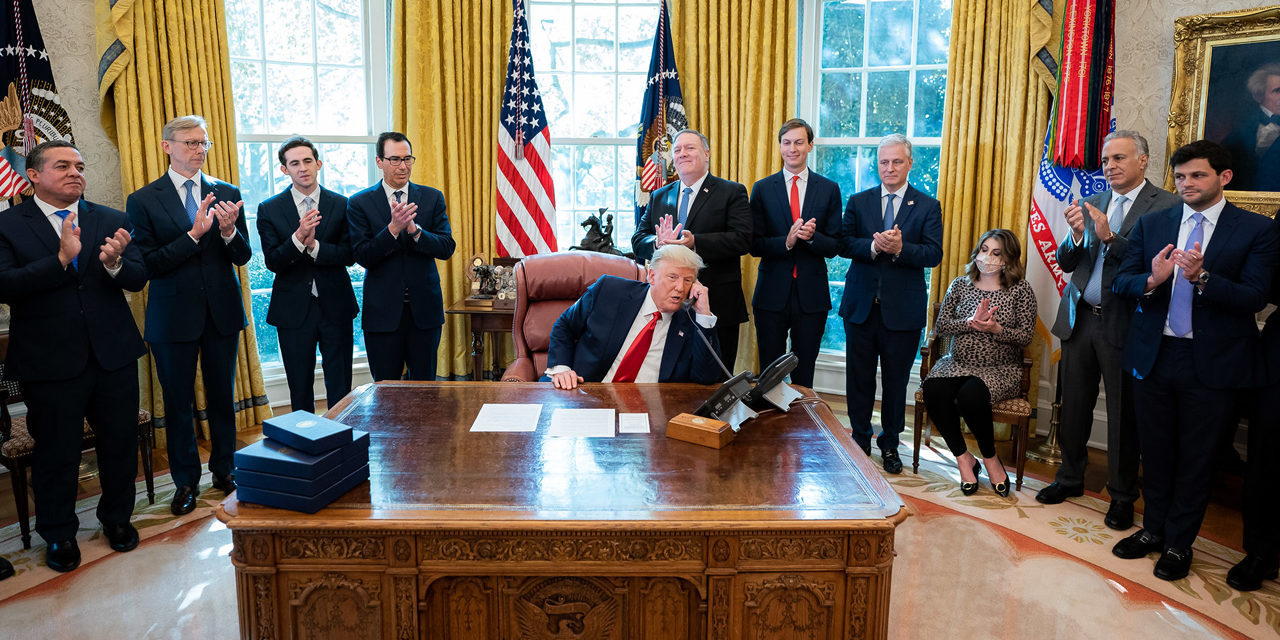On Friday, President Donald Trump announced that Israel and Sudan had signed a peace agreement, the latest of several recent high-profile Muslim and Israeli peace efforts. A country that once harbored September 11 mastermind Osama bin Laden in the 1990s, Sudan’s peace agreement is particularly encouraging for future peace in the Middle East.
Sudan is a landlocked country that borders Egypt, Chad, South Sudan, Ethiopia, Libya and Eritrea with a long and complex history, especially when it comes to terrorism and the United States.
The first time Sudan really came to the attention of Americans was in 1973, when the radical Palestinian terrorist group Black September, which was responsible for killing Israeli Olympians in Munich the year before, stormed the Saudi Arabian Embassy where Western diplomats were attending a party. The terrorists demanded the release of one of the Munich masterminds in exchange for the lives of U.S. Ambassador Cleo Noel Jr., his Deputy Chief of Mission and a Belgian diplomat.
Keeping with the general desire to both de-escalate the situation while also trying to appease the Palestinian cause, the Sudanese displayed little fortitude and never pressured the terrorists with the threat of military force until it was too late. After negotiations failed due to a variety of factors, the men were mercilessly executed.
The terrorists, like in so many other hostage situations that took place in the 1970s, only received a light punishment and were viewed as sympathetic figures by many of the Muslim Sudanese.
As the largest country in Africa before it split with South Sudan, Sudan is rather desolate with little in terms of trade, agriculture and regional influence, beyond its geographic role as the place where the Blue and White Nile Rivers merge into the famous Nile River.
But that changed in the late 1980s as radical Islamists took control of the government and famously invited Osama bin Laden to set up Al Qaeda in the country. In exchange, bin Laden agreed to help the Sudanese with their attacks against the South Sudanese Christians.
It was during his time in the country that bin Laden began planning the 1998 bombings of the U.S. embassies in Dar es Salaam, Tanzania and Nairobi, Kenya, killing 224, including 12 Americans, and injuring about 5,000 people in Kenya. It was then that Americans first heard of this emerging terrorist threat of Al Qaeda.
In addition to its involvement and support of terrorist activities, Sudan has also engaged in protracted conflicts with those within its country, which has often devolved into genocide.
The African South Sudanese Christians were the target of frequent and violent attacks, including aerial bombings. Under the leadership of John Garang, the South eventually established its independence, though after Garang died in a helicopter crash in 2005 the country was consumed by rivaling factions and often civil war.
Sudan also continued to target the people in the Nuba Mountains, a primitive minority group that lives close to the South Sudanese border. The aerial bombings have recently ceased, though blockades continue to make delivering humanitarian aid difficult.
The most famous example of Sudan’s brutality is its campaign in Darfur, which attracted widespread celebrity attention in the mid-2000s. Unlike in the South, this conflict has nothing to do with religion, but more to do with an ethnic uprising against former President Omar al-Bashir. In response, al-Bashir sent out militia groups to kill and rape across the region. It’s estimated that 300,000 people have been killed since 2003 and millions more were displaced.
But it appears like Sudan’s relationship with terrorists and militia groups might be slowly coming to a close after the people successfully removed former leader and dictator al-Bashir. It’s been reported that al-Bashir will be handed over to the International Criminal Court (ICC) to stand trial for genocide and crimes against humanity.
With this complex and bloody history, it’s a welcome surprise to see peace reestablished with this large African nation. Sudan often takes its marching orders from Saudi Arabia, so, perhaps, this agreement signals that the world’s most influential Muslim nation will soon join this movement for peace.
Photo from The White House
Visit our Election 2020 page






